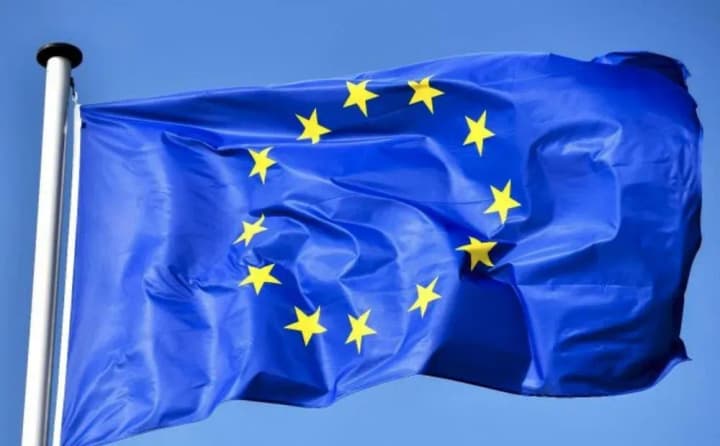New EU sanctions package to mark war anniversary targets Russian military and technology companies - Euractiv
Kyiv • UNN
The EU is expected to impose new sanctions on Russian technology and military companies, including those supplying munitions from North Korea, as part of the 13th package of sanctions to mark the second anniversary of Russia's invasion of Ukraine.

The EU, as part of a new package of sanctions to mark the second anniversary of Russia's invasion of Ukraine, is expected to target more Russian military and technology companies, including firms that supply munitions from North Korea, Euractiv reports, UNN writes.
Details
The EU ambassadors received the text of the proposal for the 13th package of sanctions from the European Commission and the EU Diplomatic Service (EEAS) on Thursday, February 8, and, as noted, held the first discussion of its content.
It will include new lists of individuals and legal entities and will consider "the effectiveness of our measures based on ongoing experience from the battlefields," a source in the Belgian presidency said.
Russian military and technology companies
According to a draft document reviewed by Euractiv, the new sanctions package includes about 55 legal entities and more than 60 individuals.
"Among them are individuals and companies engaged in the production of weapons and the supply of key technologies and electronics used by the Russian defense industry to create weapons for the battlefield," the report says.
This also includes shipping companies that provided transportation and logistics for the delivery of ammunition to Russia from North Korea after the latter provided Moscow with hundreds of thousands of artillery shells.
According to the draft document, the current proposals also include several military and other officials, politicians, and company directors on the sanctions lists.
No new sectoral sanctions
However, the new sanctions proposal, as noted, "would not add new import bans, such as new EU embargoes on Russian metals, liquefied natural gas, or nuclear facilities.
Despite calls from some EU member states to ban more Russian exports, such as aluminum, the European Commission has indicated that it is proposing a package of measures that it hopes will cause minimal debate among member states and therefore be adopted quickly.
"This time we need to act faster than with the previous package and also send a signal to (Russian President Vladimir) Putin," said one EU diplomat.
"As always, there is little point in comparing these packages with each other, as there is less and less room for more," the second EU diplomat added.
During the previous twelve packages of restrictive measures, the EU imposed bans on many important goods, such as imports of Russian oil by sea and, most recently, diamonds.
EU officials believe that there is little left on which EU member states could find unanimous agreement, and sanctions on Russian nuclear fuel and liquefied natural gas are not currently under consideration.
Proposals from Eastern EU countries
A group of Eastern European member states calls on the bloc to be more ambitious and add new economic sanctions to the package. Estonia, Latvia, Lithuania and Poland call for three points: there should be at least no new contracts with Russia's state nuclear company Rosatom, no investment in Russian civilian nuclear power, and no imports of enriched uranium from Russia.
They also called for further restrictions on the export of goods and technologies used in the production of unmanned aerial vehicles (UAVs) aimed at undermining Russia's military machine and limiting the export of certain goods to Iran through a mechanism to prevent the circumvention of sanctions, as previously proposed, the publication said.
In addition to countering circumventions and targeting exports of dual-use goods and advanced technologies, they reportedly also advocated further restrictions on imports of scrap metal, LNG, iron and aluminum products.
Meanwhile, in December, the Czech Republic reportedly tried to revive a proposal to restrict the freedom of movement of Russian diplomats in the passport-free Schengen area of Europe.
What's next
European Commission President Ursula von der Leyen told the European Parliament earlier this week on Tuesday, February 6, that the next package of sanctions would be put in place by the "symbolic" date of February 24.
"Without wanting to get bogged down in the agenda, the ideal scenario would be to get this package approved before the second anniversary of Russia's aggression against Ukraine," said a third EU diplomat.
The EU member states are expected to send comments by the end of this week, and the bloc's ambassadors are scheduled to discuss the proposal in detail next week.
Once the sanctions package is approved, the European Commission will be able to propose a 14th set of measures, including some new import bans, relatively quickly, several EU diplomats suggested.
Optional
Director of the Kyiv Scientific Research Institute of Forensic Expertise Oleksandr Ruvin said earlier that Western partners are constantly interested in the origin of foreign components in Russian weapons in order to take appropriate measures against the manufacturing companies. He addedthat sanctions against Russia are in place, but it is making every effort to circumvent them through third countries.
"They are interested in which company, whose production, when the component was produced, because in many cases the Russians erase the numbers, erase the manufacturers. And we have to use special methods that we have to conduct examinations The sanctions are in place. They apply only to the purchase of these components by the Russian Federation or its satellites. But there are third and fourth countries from which it is also possible to supply, and this is probably how it is done," Ruvin noted.